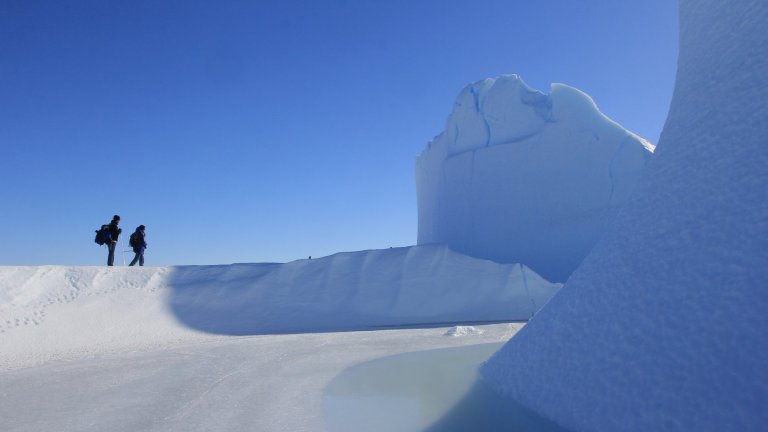
© Bruno Jourdain / IPEV / LGGE / CNRS Images
View the mediaScientific news
From the Alps to Antarctica, come with us on a trip through the glaciers and icebergs, those fascinating ice monsters on the brink of disappearing.

© Bruno Jourdain / IPEV / LGGE / CNRS Images
View the mediaDue to climate warming, the very coldest regions of our planet are currently undergoing the fastest and most spectacular changes in the Earth's history. From the Alps to Antarctica, come with us on a trip through the glaciers and icebergs, those fascinating ice monsters on the brink of disappearing. Through our series of documentary reports, come with us to meet some of the inhabitants of the polar regions and the researchers studying their lives, and learn more about the very real consequences of the ice melting.
Our work is guided by the way scientists question the world around them and we translate their research into images to help people to understand the world better and to awaken their curiosity and wonderment.